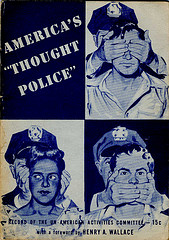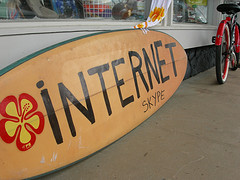September 9, 2025
Browse by Subject
- Defamation (588)
- Copyright (511)
- Legal Threat (507)
- Free Speech (411)
- Blogs (315)
- Section 230 (309)
- Anonymity (301)
- Social Media (297)
- Citizen Journalism (286)
- Newsgathering (286)
- Fair Use (280)
- Criminal (279)
- Journalism (266)
- Access to Gov't Information (242)
- Third-Party Content (239)
- Censorship (230)
- Twitter (229)
- Privacy (213)
- CMLP (211)
- Trademark (189)
- DMCA (162)
- Shield Laws (149)
- Access to Courts (148)
- Prior Restraints (120)
- FOIA (107)
- SLAPP (105)
- Cyberbullying (89)
- Elections and Politics (88)
- Legal Guide (84)
- Recording Others (83)
- User Comments or Submissions (82)
- Terms and Conditions (80)
- Publication of Private Facts (80)
- Right of Publicity (79)
- Subpoenas (78)
- Advertising (77)
- Consumer Ratings and Reviews (59)
- Intrusion (54)
- False Light (54)
- Student Speech (54)
- Gripe Sites (51)
- Congress (49)
- Hot News Misappropriation (47)
- Resources and Tools (45)
- Open Meetings (43)
- Children (42)
- Linking (41)
- Computer Fraud and Abuse Act (41)
- Obscenity (36)
- Access to Places (35)
- Business Torts (33)
- Identity (33)
- Aggregation (33)
- Trade Secrets (30)
- Trade Libel (25)
- Personal Jurisdiction (24)
- Licensing (24)
- Business Formation (23)
- Taxes (22)
- Sanctions (21)
- Employee Blogs (20)
- Domain Names (19)
- Real Estate (17)
- Retractions and Corrections (15)
- Credentials (15)
- DMLP (13)
- Cyberstalking (13)
- Reviews (11)
- Insurance (11)
- Hate Speech (11)
- Misappropriation (11)
- Establishment Clause (10)
- Government Speech (9)
- Website Design (7)
- Statute of Limitations (4)
- Science (3)
- Patent (2)
Recent Blog Posts
-
11 years 2 months ago
-
11 years 3 months ago
-
11 years 4 months ago
-
11 years 4 months ago
-
11 years 4 months ago
-
11 years 5 months ago
-
11 years 5 months ago
-
11 years 5 months ago
We are looking for contributing authors with expertise in media law, intellectual property, First Amendment, and other related fields to join us as guest bloggers. If you are interested, please contact us for more details.


 Baidu, the operator of China’s most popular search engine, has won the dismissal of a United States lawsuit brought by pro-democracy activists who claimed that the company violated their civil rights by preventing their writings from appearing in search results. In the most thorough and persuasive opinion on the issue of search engine bias to date, a federal court ruled that the First Amendment protects the editorial judgments of search engines, even when they censor political speech.
Baidu, the operator of China’s most popular search engine, has won the dismissal of a United States lawsuit brought by pro-democracy activists who claimed that the company violated their civil rights by preventing their writings from appearing in search results. In the most thorough and persuasive opinion on the issue of search engine bias to date, a federal court ruled that the First Amendment protects the editorial judgments of search engines, even when they censor political speech. Whether we consider the
Whether we consider the  In the days of unwarranted government surveillance and elaborate data collection, people increasingly rely on anonymizing services to keep their online activities private, such as proxy servers, encrypted cloud storage, and virtual private networks. Virtual private networks, or VPNs, route online communications through a secure and encrypted private network to a remote server (sometimes in a jurisdiction with greater protection for freedom of speech or weaker law enforcement).
In the days of unwarranted government surveillance and elaborate data collection, people increasingly rely on anonymizing services to keep their online activities private, such as proxy servers, encrypted cloud storage, and virtual private networks. Virtual private networks, or VPNs, route online communications through a secure and encrypted private network to a remote server (sometimes in a jurisdiction with greater protection for freedom of speech or weaker law enforcement). Several
Several For me, thinking about one of the Obama administration's latest initiatives to keep us all safe online is like one of those pattern recognition puzzles (you know, like "What is the next term in this sequence: O, T, T, F, F, S, S, E, N, __?"). Here, the sequence is:
For me, thinking about one of the Obama administration's latest initiatives to keep us all safe online is like one of those pattern recognition puzzles (you know, like "What is the next term in this sequence: O, T, T, F, F, S, S, E, N, __?"). Here, the sequence is:
 Arizona State Representative Michelle Ugenti (R-Scottsdale) introduced
Arizona State Representative Michelle Ugenti (R-Scottsdale) introduced  Last October
Last October  On October 16, the Union des Étudiants Juifs Français (Union of French Jewish Students, UEJF) asked Twitter to remove several racist and anti-Semitic tweets. Using the hashtags #unbonjuif and #unbonmusulman ("agoodjew" and "agoodmuslim," respectively), some Twitter users were posting derogatory comments about Jews and Muslims, some allegedly meant to be 'jokes.'
On October 16, the Union des Étudiants Juifs Français (Union of French Jewish Students, UEJF) asked Twitter to remove several racist and anti-Semitic tweets. Using the hashtags #unbonjuif and #unbonmusulman ("agoodjew" and "agoodmuslim," respectively), some Twitter users were posting derogatory comments about Jews and Muslims, some allegedly meant to be 'jokes.'
 You might recall the Los Angeles Police Department's infamous
You might recall the Los Angeles Police Department's infamous  It is ridiculously easy to create an online forum.
It is ridiculously easy to create an online forum.
